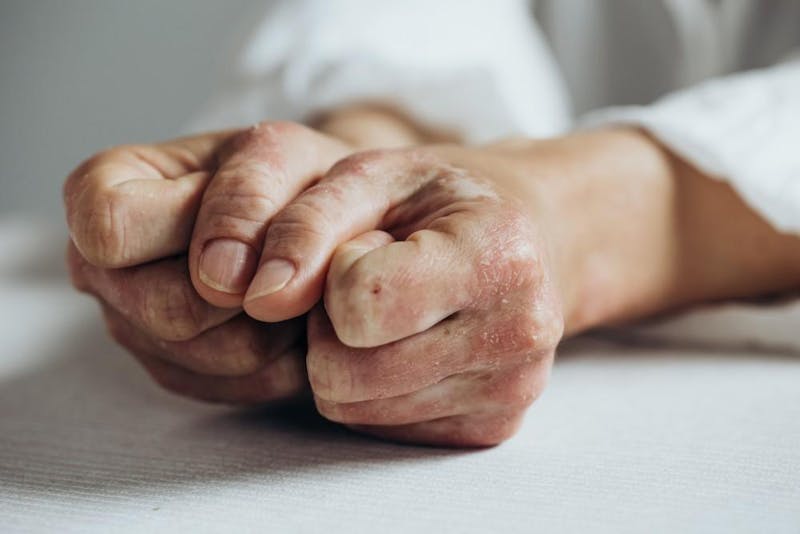
A 1960s ad campaign described a product that could help with the “heartbreak of psoriasis.” That might sound dramatic, but anyone living with the condition knows it can prompt social anxiety, self-consciousness, and worry about the next flare-up.
At the Center for Dermatology in Lawrenceville, Georgia, Dr. Abdul Hafeez and his team are committed to providing the most innovative, compassionate care for patients with psoriasis.
The challenges of psoriasis
Psoriasis is an autoimmune disease. Your immune system mistakenly increases skin cell growth and turnover to respond to a perceived or real threat. Dead skin cells accumulate before your body can effectively slough them off.
Plaque psoriasis, the most common form of the condition, causes upsetting, uncomfortable symptoms, including:
- White or silver, flaky skin scales that develop over red skin patches or thickened skin
- Pain, itching, or burning at psoriatic lesion sites
- Cracked or dry skin that can bleed
- Finger or toenail pitting or discoloration
- Symptom flare-ups that come and go
There’s a genetic component to psoriasis, but environmental factors can also contribute. Unfortunately, many things can trigger a psoriasis flare, like infection, cold weather, sunburn, and skin injury. Some medications also cause symptoms.
In addition to the uncomfortable, embarrassing, and often visible physical symptoms, psoriasis can cause significant emotional distress for patients, including depression and anxiety.
It’s critical to seek care for psoriasis. Worrisome complications can occur if it’s left untreated.
Reducing the chances of psoriasis complications
We’ve compiled a list of psoriasis complications that Dr. Hafeez wants to make you aware of, and advice on how to avoid them.
1. Psoriatic arthritis
This complication affects approximately one-third of people with psoriasis, and symptoms like stiff joints, pain, and swelling can be debilitating.
Seeking treatment from a provider who specializes in rheumatology is vital to reduce inflammation. They may recommend nonprescription or prescription medications, including injections and oral medications that can put the brakes on the disease’s progression.
Psoriatic arthritis joint damage can become permanent if not addressed.
2. Heart disease
Both severe psoriasis and psoriatic arthritis increase your risk of heart disease and conditions that set you up for heart attack and stroke, like high cholesterol, high blood pressure, and a tendency to accumulate abdominal fat.
Adopting smart lifestyle choices can help reduce your risk. Keeping yourself at a healthy weight, or losing weight if you need to, lowers heart disease risk and helps your psoriatic arthritis, because overweight and obese individuals have greater disease severity.
Extra pounds also exacerbate psoriasis, even if you don’t have psoriatic arthritis.
Another harmful habit is smoking. Smoking is terrible for your heart and lessens the effectiveness of medications designed to treat psoriatic disease.
Ensuring your psoriasis is well-treated is essential, as is seeing your primary care provider to discuss heart disease screening.
3. Diabetes
Diabetes has its own long list of potentially serious complications, and unfortunately, people with severe psoriasis have a 30% greater risk of Type 2 diabetes. The culprit is widespread chronic inflammation, a feature of psoriasis and diabetes.
What you can do to stay on top of your health is to get screened for diabetes, especially if you’re female (diabetes tends to affect more women with psoriasis). It’s also smart to be aware of diabetes symptoms, like blurred vision and excessive thirst.
Eating a nutrient-dense, healthy diet, exercising regularly, and managing your weight can minimize your diabetes risk.
4. Mental health
We noted that psoriasis is linked to depression and anxiety, but inflammation is also associated with depression. Treating your psoriasis can help improve your mental health.
Seeking counseling can also help.
We’re here to treat your psoriasis and minimize your risk of complications with topical medications, biologic medications, and light therapy.
Don’t delay getting your psoriasis treated. Call our office at 770-682-2500 to schedule an appointment, or book online today.

